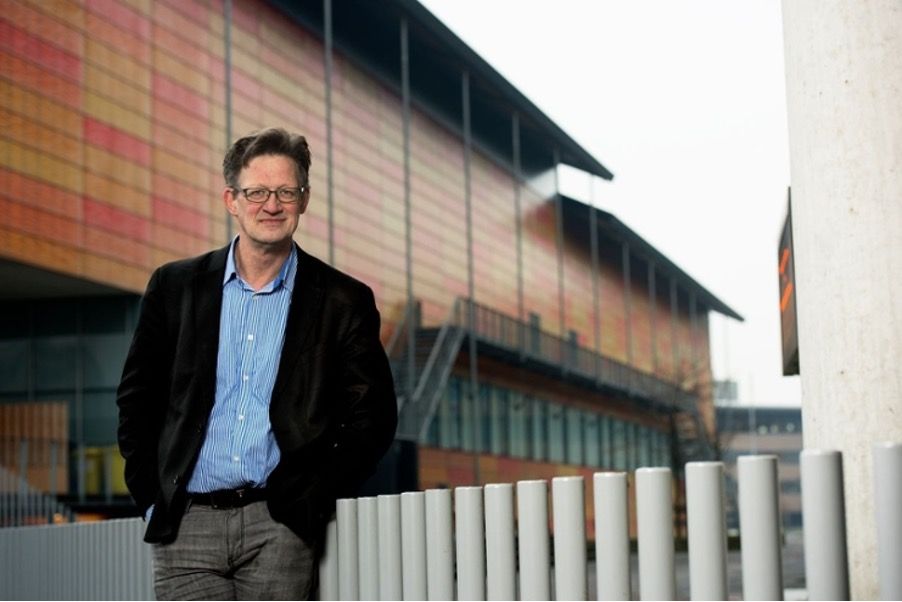Peter Schoenmakers Receives Royal Honour
Peter Schoenmakers has been named “Knight of the Order of the Netherlands Lion” in a ceremony on 28 June 2022. The honour was bestowed for his exceptional achievements in the field of analytical chemistry, all of which have earned him international recognition and acclaim.

This royal commendation is one of the oldest and highest civil honours in the Netherlands. King Willem I established the order on 29 September 1815. Candidates who have made an exceptional contribution to society, especially in science, art, sports, and literature, are eligible for this honour. The decoration was presented to Peter by Annette Groot, Deputy Mayor of the Municipality of “Dijk en Waard”, after his valedictory speech marking his emeritus status as a professor of “Analytical Chemistry and its applications in Forensic Science”.
Anybody familiar with the field of chromatography will be aware of Peter’s achievements and contributions, especially towards the development of comprehensive two-dimensional liquid chromatography (LC×LC) and comprehensive two‑dimensional gas chromatography (GC×GC). His most recent work has focused on the concept of spatial three-dimensional liquid chromatography for the separation of a million components, the aptly named “A Million Peaks” project (also known as “Separation Technology for A Million Peaks” [STAMP]), which earned him the prestigious ERC Advanced Grant in 2016 worth around €2.5 million in funding.
Peter’s influence within the field of chromatography has led to numerous awards including: the Dal Nogare Award (2019) and the Csaba Horváth Memorial Award (2015). In August he will be presented with the 2022 Award in Chromatography by the American Chemical Society in Chicago, USA. He has (co-)authored more than 230 scientific publications in leading journals and supervised the research of 36 PhD students. He is also an editor for the Journal of Chromatography A and a member of LCGC’s editorial advisory board.
As a professor, Peter has led the analytical chemistry team in Amsterdam towards national recognition as a centre of expertise for analytical sciences in the Netherlands. He maintains a very extensive network of international, industrial, and academic contacts that he uses to further develop analytical chemistry in the Netherlands, which is evidenced by his role as one of the instigators of COAST, the public-private Community of Innovation in Analytical Science and Technology in the Netherlands. As its education director, he has created programmes to stimulate analytical science studies, with support for education amounting to more than €300,000 annually.
LCGC would like to extend its congratulations to Peter on this tremendous achievement.

Measuring Vitamin K1 Concentrations in Dogs with Chronic Enteropathy Using LC–MS/MS
May 14th 2025A joint study between the University of Tennessee (Knoxville, Tennessee) and the University of Pennsylvania School of Veterinary Medicine (Philadelphia, Pennsylvania) compared directly measured vitamin K1 (vitK1) concentrations in healthy dogs and dogs with chronic enteropathy (CE) using liquid chromatography tandem mass spectrometry (LC–MS/MS); they also investigated whether supplementation of vitK1 in dogs with CE would significantly increase vitK1 concentrations.
HPLC 2025 Preview: Fundamentally Speaking (Part 2)
May 14th 2025Michael Lämmerhofer from the Institute of Pharmaceutical Sciences, University of Tübingen, Germany, spoke to JFK Huber Lecture Award winner of 2024 Torgny Fornstedt, professor in analytical chemistry and leader of the Fundamental Separation Science Group, Karlstad University, Sweden, about his pioneering work in high performance liquid chromatography (HPLC) with a focus on fundamentals, ion-pair chromatography, and oligonucleotide applications.

.png&w=3840&q=75)

.png&w=3840&q=75)



.png&w=3840&q=75)



.png&w=3840&q=75)
















